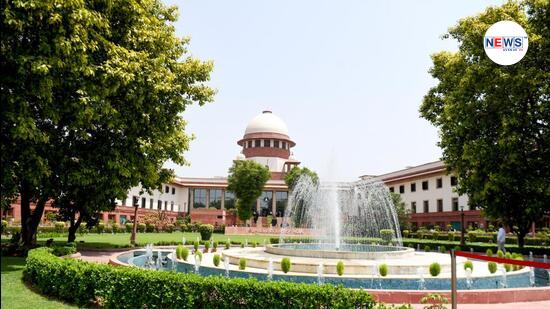
India is not a ‘dharamshala’: SC rejects plea against deportation
The Supreme Court on Monday sent a strong message that India is not a “dharamshala” (shelter) for housing refugees, refusing to interfere with a high court order directing deportation of a Sri Lankan Tamil after he completed his sentence under the Unlawful Activities Prevention Act (UAPA) for being a member of the banned Liberation Tigers of Tamil Eelam (LTTE).
A bench headed by justice Dipankar Datta, said, “We are struggling with (population of) 1.4 billion. This is not a dharamshala that we can entertain foreign nationals from all over.
The court was hearing a petition filed by Subaskaran (goes by one name), who completed a seven year term in 2022 and has since been at a detention camp in Tiruchirapalli pending his deportation to Sri Lanka.
His lawyers argued that his wife and children are settled in Tamil Nadu and there is threat to his life if he returns to Sri Lanka, but the bench, also comprising justice Vinod K Chandran, categorically asserted that right to reside in the country belongs only to citizens and foreigners should leave the country.
“Is India to host refugees from all over the world…What is your right to settle here? There is no violation of your Article 21 (right to life and liberty) of Constitution of India as your liberty was taken away under the due procedure established by law. As regards the fundamental right to settle in India as per Article 19(1)(e) is concerned, it is available only to citizens.”
The petitioner challenged the June 21, 2022 order of the Madras high court which confirmed the conviction under section 38(1) of UAPA which punishes a person who is associated with a terrorist organisation with an intention to further its activities. While the trial court sentenced him to 10 years rigorous imprisonment, the high court reduced it to 7 years with a direction that he would leave the country immediately upon his release from jail. The order further required him to be kept in a detention camp till he left. Subaskaran was arrested in 2015.
In his petition, Subaskaran said that during the war between the Sri Lankan Army and the LTTE, his family suffered devastating losses. As he fought the war as a former member of LTTE, returning to Sri Lanka posed a grave threat to his life and his family members, his lawyers argued.
The bench remarked, “Then you go to some other country.”
The response of the bench is in line with its recent remarks while dealing with the Rohingya refugees whose plea seeking stay on deportation was not entertained by the top court on May 8. The court then relied on an earlier order passed by it in the context of Rohingya refugees on April 8, 2021 that said, “It is true that the rights guaranteed under Article 14 and 21 are available to all persons who may or may not be citizens. But the right not to be deported, is ancillary or concomitant to the right to reside or settle in any part of the territory of India guaranteed under Article 19(1)(e).”
Incidentally, justice Datta was part of the bench headed by justice Surya Kant that passed the May 8 order along with justice N Kotiswar Singh.





